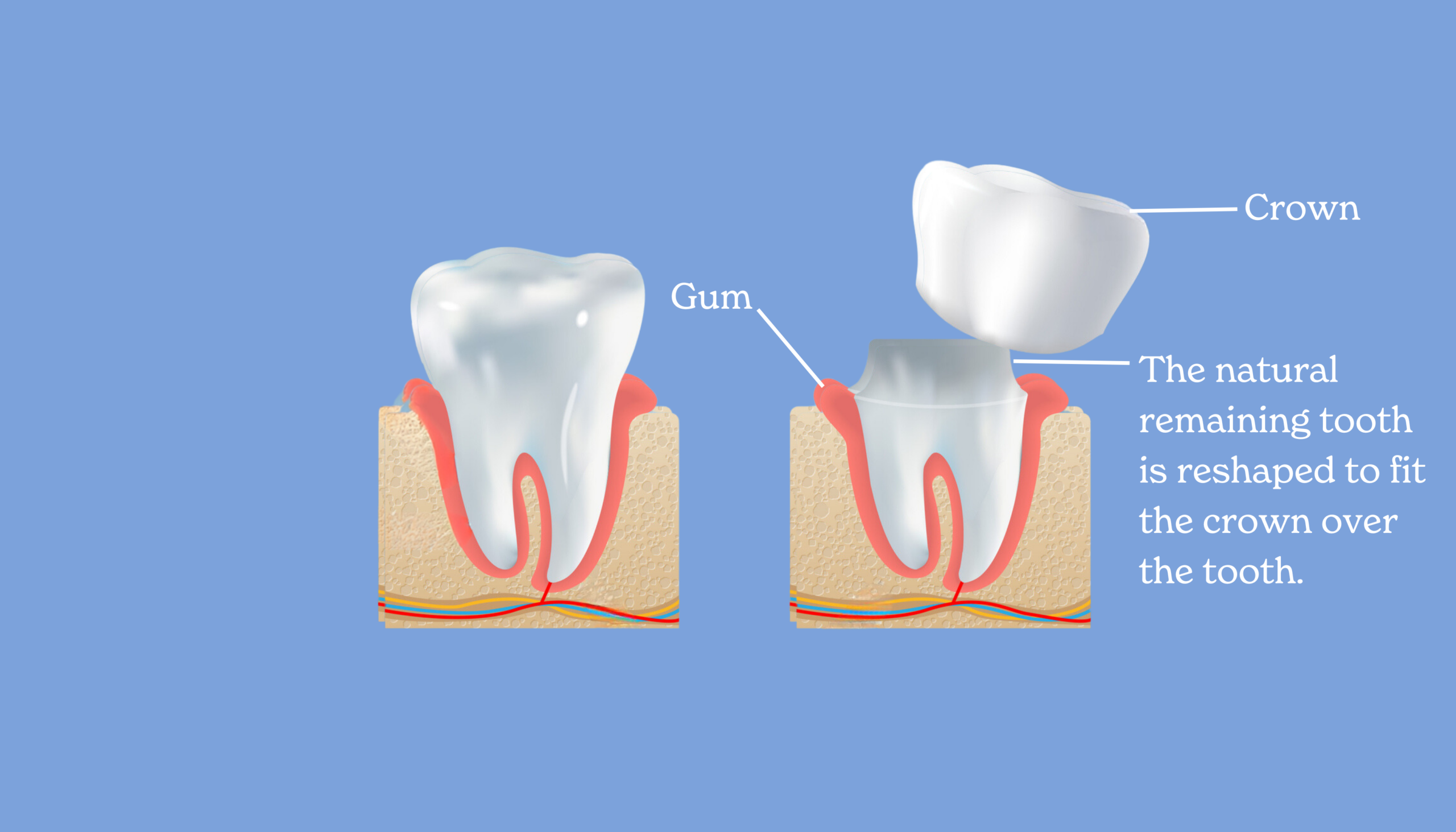Crowns
Crowns replace the natural crown, which is the part of the tooth that is visible above the gums. Dental crowns can be used for strengthening and improving durability and tooth stability, or for cosmetic reasons to enhance the appearance of a tooth.
Book a general exam with your dentist today and discover what cosmetic treatments are available to you.

Compare cosmetic dental options
| Purpose | Advantages | Disadvantages | Lifetime | Procedure | Material | Cost | |
|---|---|---|---|---|---|---|---|
| Crowns | Strengthen and improve durability and tooth stability, or enhancing the appearance of a tooth. |
A long-term solution to replacing damaged teeth and improving their appearance.
May resist tooth staining more than natural teeth.
|
Removes more natural tooth than other options.
May need to be replaced throughout lifetime.
|
5 to 15 years or longer with proper care and maintenance. | Generally require two appointments. The tooth needs to be prepared before the new crown is adjusted and cemented in place. | Can be made from porcelain or ceramic to blend seamlessly with your natural teeth. | Cost varies depending on the material chosen. Porcelain crowns are generally more expensive. |
| Veneers | An effective solution for improve the shape, size, and colour of teeth. |
Generally, require less of the natural tooth enamel to be removed compared to crowns.
May resist tooth staining more than natural teeth.
|
Natural teeth can still decay beneath the veneer.
May need to be replaced throughout lifetime.
|
Porcelain: up to 10 years. Composite: Up to 5 years. |
Enamel is removed from the tooth surface in order to place the veneer on top of the tooth. | Thin porcelain or composite resin facings that are bonded to the front surface of teeth. | Cost varies depending on the material chosen. Porcelain veneers are generally more expensive than composite veneers. |
FAQS
Dental crowns are often required when a tooth has been severely weakened and is no longer structurally sound. This can be as a result of trauma, tooth decay, previous root canal therapy or even general wear over time. Dental crowns provide a lot of strength and stability to teeth and are often used to reduce the risk of irreparable fractures in teeth that have very large fillings or are sensitive when chewing due to cracks.
Crowns can also be used to brighten and improve the appearance of your smile by covering broken, chipped, stained or discoloured teeth or by modifying the shape of a tooth. Dental crowns are custom-made for each individual patient and can be matched to existing teeth making them a favourable cosmetic dental treatment option.
Constructing a dental crown generally requires two appointments with your dentist.
- During the first appointment the existing tooth is prepared to receive the dental crown, impressions are taken and a temporary crown is placed over the prepared tooth.
- At the next visit, the temporary crown is removed and replaced by the new custom-made dental crown. The new crown is adjusted and cemented into place, providing a more long-term natural-looking solution.
Dental crowns can be constructed from a range of materials including porcelain, porcelain fused to metal, gold and zirconium. Your dentist will discuss which material will be most appropriate for you.
The lifespan of a dental crown depends on factors such as oral hygiene practices, regular dental check-ups, and the type of material used. On average, dental crowns can last between 5 to 15 years or longer with proper care and maintenance.
Taking care of dental crowns involves practicing good oral hygiene, including regular brushing, flossing, and routine dental check-ups. It’s important to avoid habits such as teeth grinding or clenching and to maintain a balanced diet. Following your dentist’s instructions for care and maintenance will help extend the longevity of your dental crown. In some instances, your dentist may suggest a splint be worn at night to protect your crowns and make them last longer.


